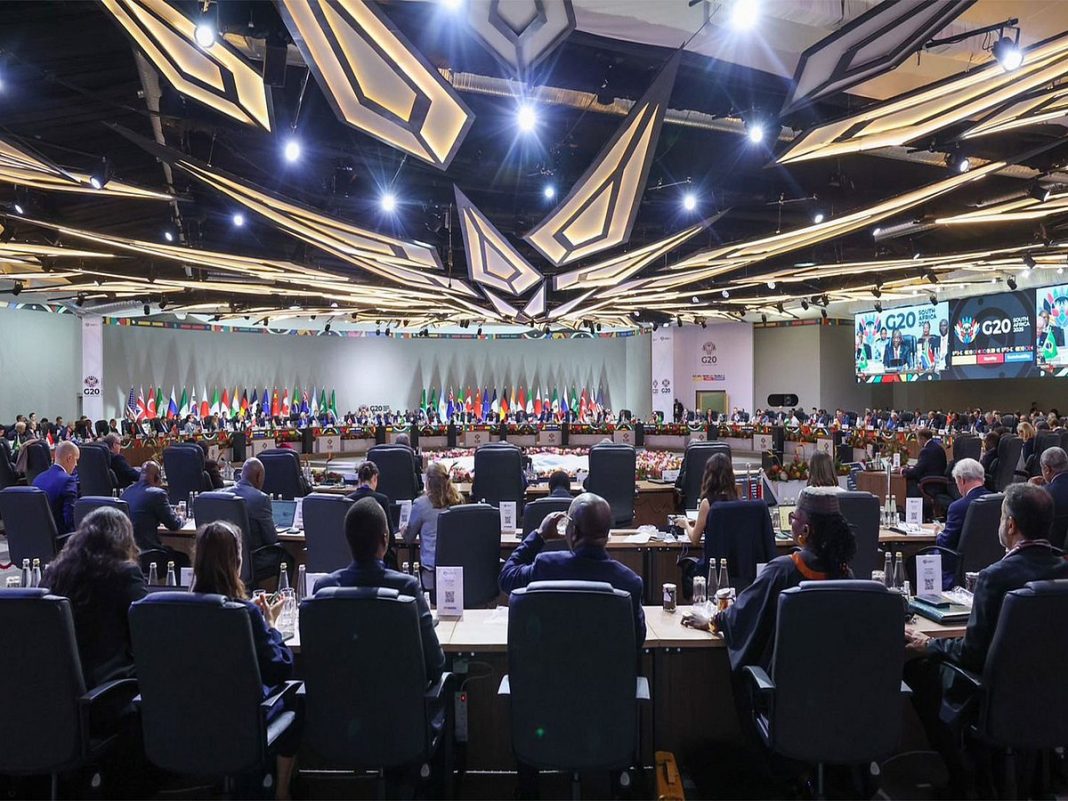G20 Leaders Call for Urgent Overhaul of Global Development Model
South African President Cyril Ramaphosa and Indian Prime Minister Narendra Modi have jointly warned that widening global inequality is undermining climate action and poverty reduction, demanding an urgent overhaul of the current development model.
Key Takeaways
- Ramaphosa described the current global trajectory as “unjust and unsustainable.”
- Both leaders called for reforming development finance mechanisms and multilateral institutions.
- Modi emphasized that inclusive growth must not be limited to “select corridors of prosperity.”
Ramaphosa’s Strong Critique
Addressing the G20 Leaders’ Summit, President Ramaphosa highlighted deep and persistent global inequalities in wealth and development. He noted that despite decades of international cooperation, the gap between rich and developing nations continues to widen, affecting progress on poverty reduction, climate action and technology access.
Ramaphosa stressed that developing economies require greater fiscal space, long-term concessional finance, and fairer global trading arrangements to accelerate growth. He urged G20 members to reform development finance mechanisms so emerging nations aren’t forced to choose between economic stability and essential social spending.
The South African leader also reiterated Africa’s demand for greater influence in global forums, stating that inadequate representation weakens the legitimacy of global decision-making. He warned that meaningful progress on climate and sustainable development targets is impossible while Global South countries remain constrained by debt, volatile capital flows, and a financial system favoring advanced economies.
Modi’s Call for Inclusive Growth
Prime Minister Narendra Modi, presiding over the session, echoed concerns about uneven global development but framed the moment as an opportunity for the G20 to reset priorities. He emphasized that inclusive growth must form the foundation of global economic recovery, stressing that development shouldn’t be confined to “select corridors of prosperity.”
Modi highlighted India’s digital and infrastructure initiatives as models of scale, affordability, and resilience for developing countries. He pushed for greater focus on reforming multilateral institutions to make them more responsive to Global South challenges.
The Indian leader emphasized that the world’s largest economies have a responsibility to ensure technology, capital, and opportunities are accessible to all. Calling for collective action on energy security, food supply, and climate responsibilities, Modi said the G20 should act as a platform that “bridges divides, not deepens them.”
Growing Consensus Among Emerging Economies
The interventions from both leaders underscored a growing sentiment among emerging economies that global economic governance must adapt to shifting realities or risk leaving much of the world behind. The joint call represents significant momentum for reforming international financial architecture to better serve developing nations.




